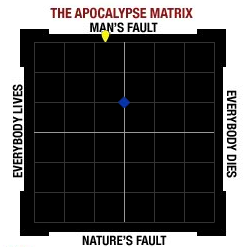 Via Scott Yorke’s excellent Imperator Fish, pics of Russian Prime Minister Vladimir Putin’s Siberian vacation photo-op.
Via Scott Yorke’s excellent Imperator Fish, pics of Russian Prime Minister Vladimir Putin’s Siberian vacation photo-op.
The wider photoset (you’ll have to google around for all the photos, since each website only contains part of the set) is a strong statement of Russia’s new national identity as a fit, keen, ruggedly independent nation which is the master of its own destiny, answerable to nobody. Vladimir Putin idealises Russia as it wants to see itself.
The wider campaign propagandises Putin’s adopted doctrine of Sovereign Democracy, essentially ‘we call our system democracy, so democracy it is’. It fetishises Putin’s personal capability and authority; his command over nature, his idolisation by ordinary Russians (even those thousands of miles from Moscow), his statesmanship. Closely resembling what I/S calls Heinlein’s psychopathic frontier barbarism, Putin rides horses, treks in the mountains, fishes in a wild river, pilots a fast boat, builds a fire, helps rescue a beached whale, comforts an Ingushetian politician injured in a suicide bombing, works in a metallurgists’ plant, gives orders as to a train crash, visits a political youth camp, meets Alexander Solzhenitsyn’s widow, and shares tea with the locals. All with the cameras in attendance (and in some cases, with the sound guy in-shot – no attempt at pretending it’s not a propaganda exercise).
There has been much speculation as to the import of this photoset, ranging from the suggestion that, by appearing bare-chested in the outdoors on a holiday with the Prince of Monaco, Putin is sending a signal of tolerance about homosexual rights, referencing Brokeback Mountain. The semi-official spin, naturally, is that it’s simply a demonstration that Putin knows how to relax – a signal that he will retire peaceably at the end of his second term as Prime Minister.
I am not so convinced. This lays the groundwork for a perpetuation of Putin’s role as Russia’s eminent statesman of the 21st Century, and in a much more subtle and compelling way than either Hugo Chávez or Manuel Zelaya’s clumsy attempts at circumventing constitutional term-limits. The key to sovereign democracy is its illusory consent – the appeal to Russian independence, strength, unity and capability which Jonathan Brent and others have argued (audio) present the danger of sliding back to a new form of Stalinism, even with the support of those who would suffer under such a system. This is a strong warning to Dmitry Medvedev, who has criticised ‘sovereign democracy’ as a form of authoritarian doublespeak, and to the Russian people that if a ‘real’ leader is needed, one exists. Former KGB officer Putin, here, is presenting himself as another Man of Steel.
L

